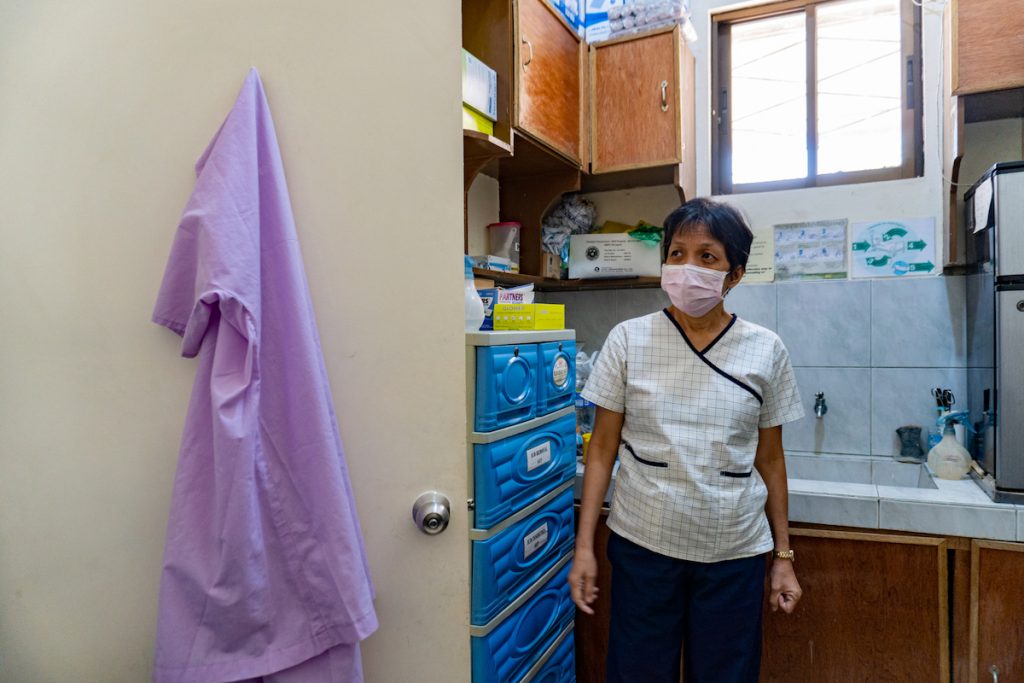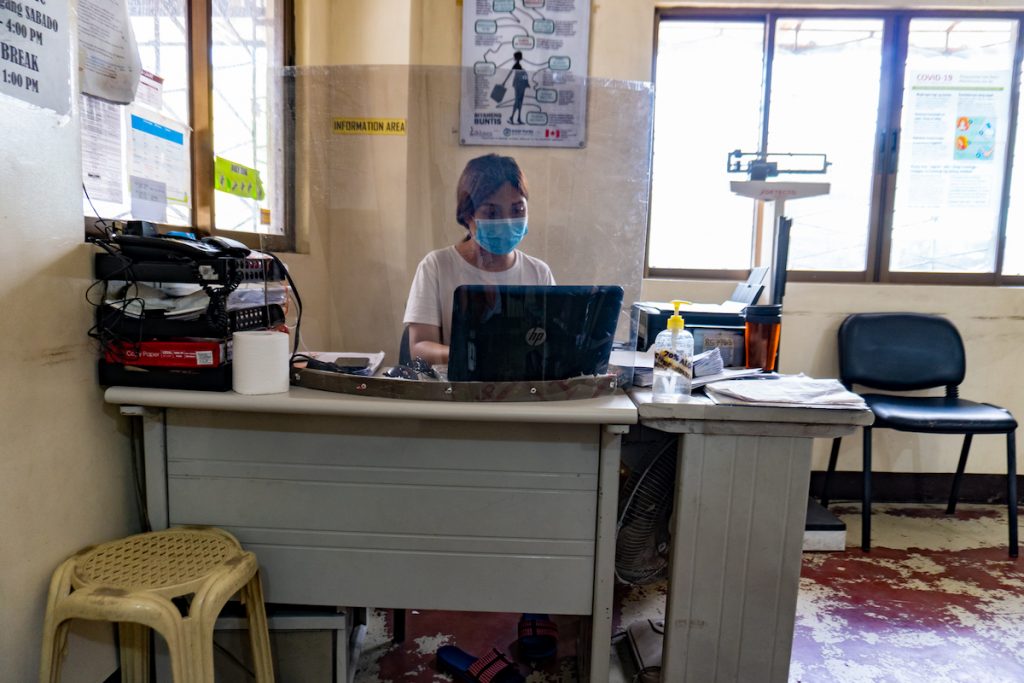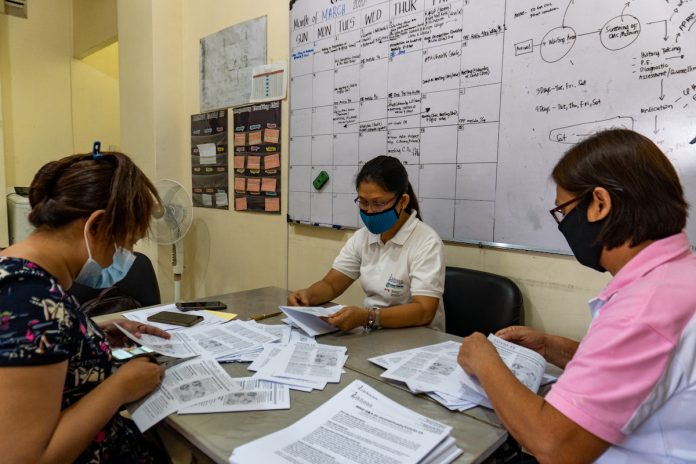Inside the Likhaan Center for Women’s Health clinic in the suburb of Navotas in the Philippines, five women answer phone calls while preparing leaflets about the new coronavirus.
It has been ten days since the government imposed an “enhanced community quarantine,” but Likhaan clinics continue operating to serve women, mostly in poor communities.
Aside from maternal and family planning, the clinics also provide reproductive health services for adolescents and counseling for victims of violence against women.
Lilibeth Armayan, a community mobilizer at Likhaan, said that since the lockdown, most of their clients had been unable to come to the clinic.
Since the enhanced community quarantine on March 16, the center has scaled down its workforce to help in “flattening the curve” of the new coronavirus.
Volunteers distribute leaflets about the disease and the various ways to prevent its spread in poor urban communities.
“We’re giving away condoms while we’re at it,” said Armayan.
Not a good time to get pregnant
Community mobilizer Josefina Simbajon said the clinic in her village used to serve an average of 30 women on a regular day.
“Sometimes, we would get as many as 50 clients,” she said.
Since the lockdown was imposed, the clinic has only been getting up to six visitors a day.
“Couples come here for family planning advice,” she said.
The community mobilizers are apprehensive that the month-long lockdown will negatively impact the center’s family planning program.
“We can attend to expectant mothers, but it’s not a good time to get pregnant,” said Simbajon.
Likhaan centers have in-house midwives and delivery rooms.
Armayan said expectant mothers are afraid to go to hospitals because of the new coronavirus outbreak.
Imelda Tano, a midwife in Likhaan’s Navotas clinic, said two mothers had successfully gave birth in the clinic during the first week of the lockdown.

She said, however, that they could not accommodate pregnant women who are “high risk.”
“Women with medical conditions like hypertension, teenage girls who are giving birth for the first time, or women who are 35 years old and above should go to a hospital,” said Tano.
Violence against women
Weeks before the government implemented the lockdown, three rape survivors were taken to the Likhaan clinic in Navotas.
The girls, aged 13 and 14, reported that they had been taken to a child molster who lived in the area. They said the rapist even asked other teenagers in the room to take videos.
A clinician examined the girls and found out that they had contracted sexually-transmitted diseases, whose treatment required medicine and three vaccine shots.
The clinician was able to administer the first two shots, but the last one could only be given after a month. Because of the lockdown, the girls were unable to return to the clinic.
“We don’t know where they are now,” said Armayan. “We’re doing what we can to find them,” she said.
A few days ago, the center also learned of a woman who ended up sleeping outside her house in the province of Cavite to escape her abusive husband.
“We are coordinating with the team and the [local government unit] to secure a permit to allow our driver to fetch this woman,” said Armayan.
A 2017 national health survey reported that one in four women, between the ages 15-49, experienced physical, emotional, or sexual violence from their husband or partner.
The community mobilizers are worried that there would be many more women who will be unable to escape their abusers, report the incident, or seek help because of the current “lockdown.”
“It is highly possible that cases of violence against women will be rampant amid the lockdown,” said Armayan.
‘We will do what we can’
Likhaan has announced online that its clinics would be open throughout the enhanced community quarantine, but the group advised its clients to go to the clinic only when necessary.
To ensure the safety of health workers and clients, the community mobilizers produced makeshift face shields for clinicians.

Ten days into the enhanced community quarantine, the clinic is already running out of surgical face masks.
“We are saving our remaining supply for more urgent things, like when the midwife needs to help a client in delivering a baby,” said Armayan.
“The clinic must be able to provide support to women especially in these times,” said Armayan.
She said the pandemic has made everyone vulnerable, but “mothers and housewives are even more burdened now.”
“Mothers with babies need to take care of themselves because they need to breastfeed and look after the children,” said Armayan.
“When the mother gets sick, it’s always the children who suffer the most.”









